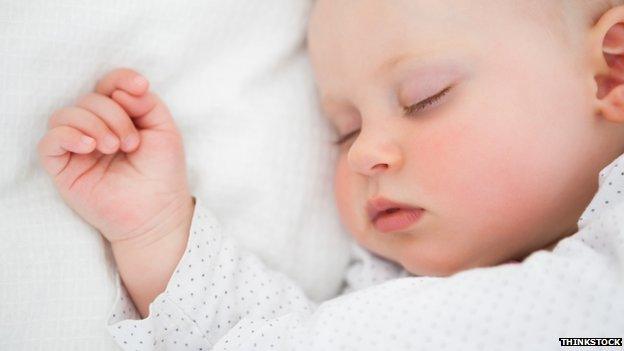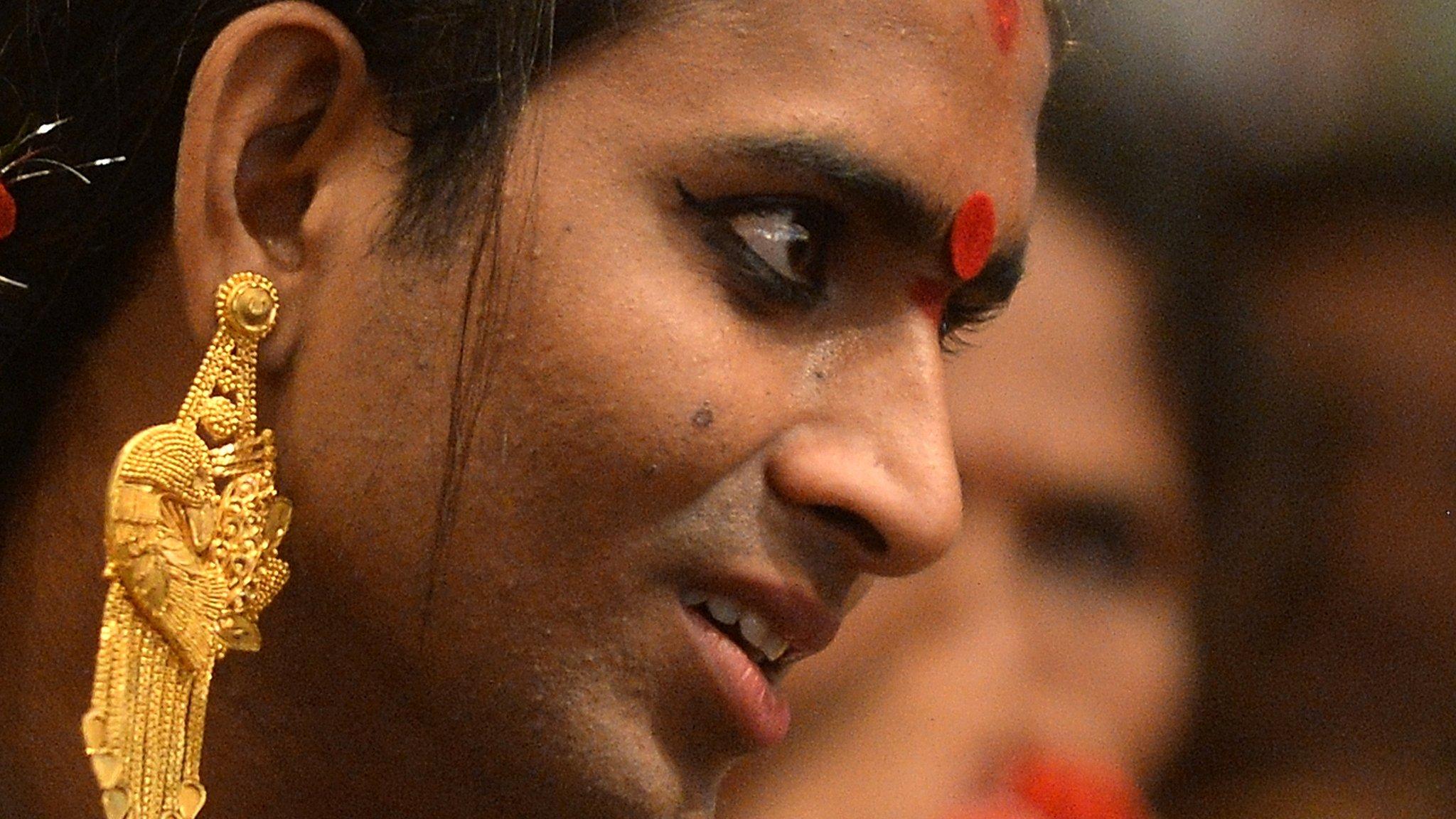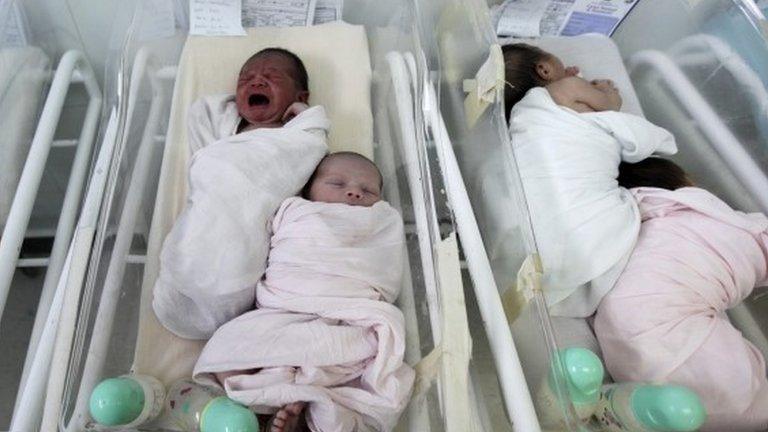Campaign calls for legal recognition of third gender
- Published

Intersex people are those born with bodies that cannot be classified as clearly male or female
A new campaign has called for the Scottish government to recognise a third gender in Scottish law.
The Equality Network and the Scottish Transgender Alliance said a third gender marker should be available to people who have a non-binary gender identity.
Currently, transgender people who do not identify as male or female have no legal recognition of their gender.
Countries that recognise a third gender include Australia, Germany and India.
The charity also said that intersex people often undergo genital surgery in early childhood that can be damaging and traumatic.
Intersex people are those born with bodies that cannot be classified as clearly male or female. The NHS refers to intersex conditions as Disorders of Sex Development (DSDs).
The campaign has called for intersex children to be protected from "unnecessary genital surgeries while too young to give or withhold their informed consent".
It also called for reform of the Gender Recognition Act 2004 to make it easier for transgender and intersex people to have the gender they live as legally recognised.
'Falling behind'
Nathan Gale, a policy officer with the Scottish Transgender Alliance, said: "Scotland is falling behind a growing number of countries around the world who now recognise in law that not everyone can be neatly categorised as male or female, and instead ensure that all trans and intersex people are accepted and protected.
"It is time for Scotland to catch up, recognise our existence and respect our diverse bodies and identities."
Robin Duval, 29, a non-binary transgender person from Edinburgh, said: "I feel like I'm leading a double life. My friends know I don't feel male or female and respect that, but the stress of having to pretend to be something that I'm not, everyday, just to fit in with society has a massive impact on my health and wellbeing.
"It affects every part of my life, whether I'm at work, going to the doctors, travelling through passport control, or even just going to the toilet. I just want to be accepted for who I am in the eyes of society, and have my gender recognised in the law with the same rights as anyone else."
'Fully committed'
More than 150 transgender and intersex people from across the country helped to launch the Equal Recognition campaign in Edinburgh on Saturday.
A Scottish government spokesman said: "The Scottish government is fully committed to equality for transgender and intersex people and added the 'I' to LGBTI (Lesbian, Gay, Bisexual, Transgender and Intersex) earlier this year as a visible symbol of that commitment.
"We are working closely with partners such as the Scottish Transgender Alliance (STA) to further develop our understanding of intersex issues and learn from international best practice.
"The next phase of our "Scotland believes in equality" campaign will include a focus on LGBTI equality."
- Published15 April 2014

- Published1 November 2013
